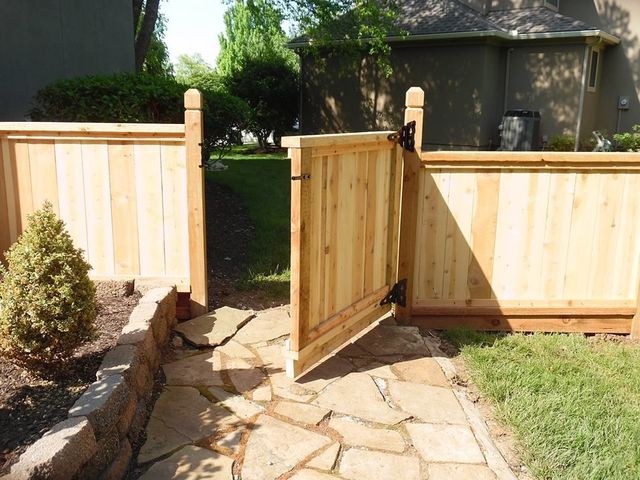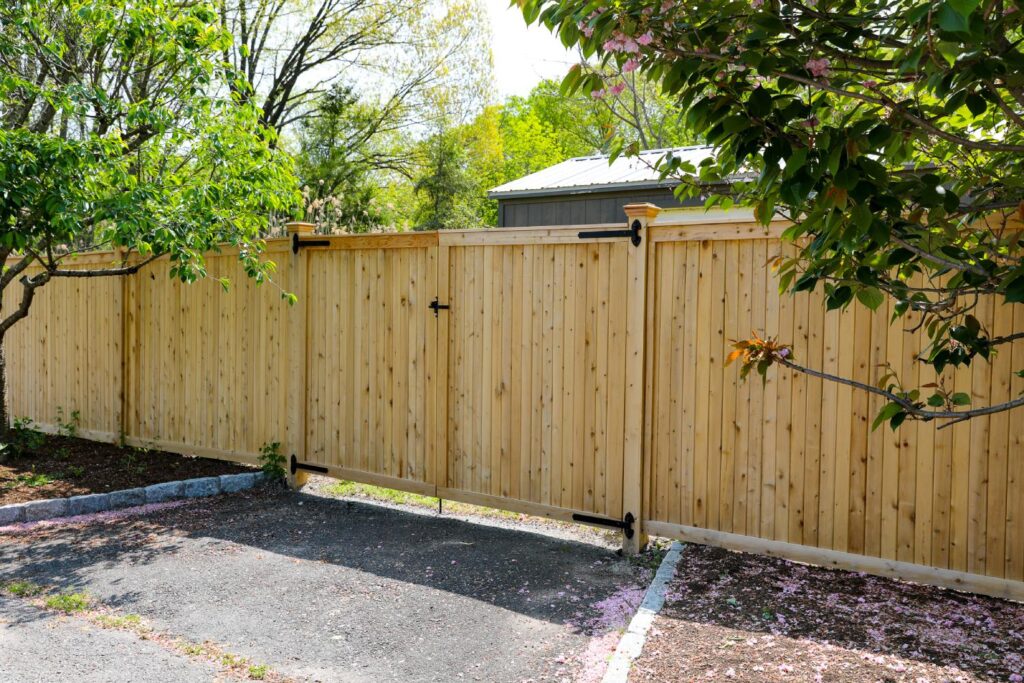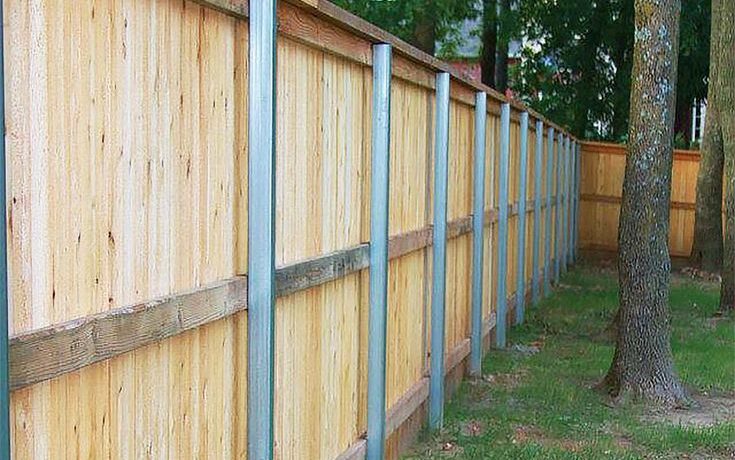All Categories
Featured
Understanding the license requirements in your location is vital if you're considering installing a fencing around your residential or commercial property. While building a fencing could look like a straightforward DIY project, numerous regulations may control its building depending on where you live. Failing to get the proper authorizations can result in fines, fines, or perhaps having to get rid of the fencing entirely. In this guide, we'll damage down the various permits you might need to set up a fence and how to guarantee your task stays compliant with local laws.
Why Are Allows Essential for Fence Installment? Authorizations are called for to guarantee that the fencing you develop stick to regional building regulations, zoning regulations, and security requirements. These licenses remain in area to safeguard your residential or commercial property, the properties around you, and the setting. They make sure that the fence won't obstruct utilities, website traffic flow, or produce risks for pedestrians. Furthermore, they help maintain the architectural and aesthetic honesty of your neighborhood.
![]()
Sorts Of Permits You May Requirement. Building Authorization. A structure authorization is the most common requirement for setting up a fencing. If your fencing goes beyond a certain height (typically around 6 feet), you may need to obtain a building authorization.
Zoning Permit. A zoning permit makes certain that your fence complies with these regulations. Your fencing may need to be established back a certain distance from walkways or property lines.
Homeowners Organization (HOA) Approval. If your property becomes part of a homeowners association, you might need authorization before mounting a fence. HOAs often have strict guidelines pertaining to the type, design, and materials utilized for fences to keep a consistent appearance throughout the community. The HOA might need you to send comprehensive plans or demand authorization before installation. Ensure you comply with these guidelines to avoid possible penalties or charges.
Specialty Permits. Sometimes, you might need specialty permits based on the area of your property or the nature of your fence. As an example, if your residential property remains in a disaster area, you may require additional permits to guarantee that your fencing does not obstruct drain or water flow. If you intend to develop a fencing near an ecologically safeguarded location, you might need an unique license to abide with ecological guidelines.
![]()
Energy Easements and Energy Firm Approvals. Prior to mounting a fence, you should examine if your home has an easement. Building a fencing within an easement can interfere with energy upkeep or damages underground lines.
Exactly How to Establish Which Permits You Need. Contact Regional Authorities. The very first action in determining the permits needed is to call your regional structure department or zoning office. They can offer certain details regarding what permits are necessary for your location. Numerous cities have on-line resources or sites where you can examine the needs or perhaps look for an authorization online.
Consult a Specialist Fence Specialist. A regional fence specialist is typically accustomed to the authorization process and neighborhood regulations. They can help you navigate the demands and make sure that your project is certified. Numerous contractors additionally take care of the authorization application procedure on your part, conserving you effort and time.
Evaluation Your Community's HOA Guidelines. If you stay in a community controlled by an HOA, see to it to evaluate their standards before getting any kind of authorizations. The HOA might call for specific styles, materials, or elevation limitations for fencings within the area. Send your strategies to them for authorization before continuing.
![]()
Consequences of Not Acquiring a Permit. Installing a fence without the needed licenses can lead to severe repercussions. Possible purchasers might think twice to acquire a building with an unpermitted fence, specifically if it's in offense of zoning legislations.
Verdict. Prior to mounting a fence on your residential or commercial property, make sure you understand the neighborhood laws and get any kind of necessary licenses. Structure licenses, zoning licenses, HOA approvals, and specialty allows all play an important role in ensuring that your fencing is secure, lawful, and compliant.
Why Are Allows Essential for Fence Installment? Authorizations are called for to guarantee that the fencing you develop stick to regional building regulations, zoning regulations, and security requirements. These licenses remain in area to safeguard your residential or commercial property, the properties around you, and the setting. They make sure that the fence won't obstruct utilities, website traffic flow, or produce risks for pedestrians. Furthermore, they help maintain the architectural and aesthetic honesty of your neighborhood.

Sorts Of Permits You May Requirement. Building Authorization. A structure authorization is the most common requirement for setting up a fencing. If your fencing goes beyond a certain height (typically around 6 feet), you may need to obtain a building authorization.
Zoning Permit. A zoning permit makes certain that your fence complies with these regulations. Your fencing may need to be established back a certain distance from walkways or property lines.
Homeowners Organization (HOA) Approval. If your property becomes part of a homeowners association, you might need authorization before mounting a fence. HOAs often have strict guidelines pertaining to the type, design, and materials utilized for fences to keep a consistent appearance throughout the community. The HOA might need you to send comprehensive plans or demand authorization before installation. Ensure you comply with these guidelines to avoid possible penalties or charges.
Specialty Permits. Sometimes, you might need specialty permits based on the area of your property or the nature of your fence. As an example, if your residential property remains in a disaster area, you may require additional permits to guarantee that your fencing does not obstruct drain or water flow. If you intend to develop a fencing near an ecologically safeguarded location, you might need an unique license to abide with ecological guidelines.

Energy Easements and Energy Firm Approvals. Prior to mounting a fence, you should examine if your home has an easement. Building a fencing within an easement can interfere with energy upkeep or damages underground lines.
Exactly How to Establish Which Permits You Need. Contact Regional Authorities. The very first action in determining the permits needed is to call your regional structure department or zoning office. They can offer certain details regarding what permits are necessary for your location. Numerous cities have on-line resources or sites where you can examine the needs or perhaps look for an authorization online.
Consult a Specialist Fence Specialist. A regional fence specialist is typically accustomed to the authorization process and neighborhood regulations. They can help you navigate the demands and make sure that your project is certified. Numerous contractors additionally take care of the authorization application procedure on your part, conserving you effort and time.
Evaluation Your Community's HOA Guidelines. If you stay in a community controlled by an HOA, see to it to evaluate their standards before getting any kind of authorizations. The HOA might call for specific styles, materials, or elevation limitations for fencings within the area. Send your strategies to them for authorization before continuing.

Consequences of Not Acquiring a Permit. Installing a fence without the needed licenses can lead to severe repercussions. Possible purchasers might think twice to acquire a building with an unpermitted fence, specifically if it's in offense of zoning legislations.
Verdict. Prior to mounting a fence on your residential or commercial property, make sure you understand the neighborhood laws and get any kind of necessary licenses. Structure licenses, zoning licenses, HOA approvals, and specialty allows all play an important role in ensuring that your fencing is secure, lawful, and compliant.
Latest Posts
Check Out the Premier Auto Repair Offers in Montclare, Chicago
Published May 24, 25
1 min read
Join Your Financial Partner at WyHy – Key Tools for Your Financial Success
Published May 24, 25
1 min read
Explore WyHy FCU – Top Benefits for Your Financial Success
Published May 23, 25
1 min read
More
Latest Posts
Check Out the Premier Auto Repair Offers in Montclare, Chicago
Published May 24, 25
1 min read
Join Your Financial Partner at WyHy – Key Tools for Your Financial Success
Published May 24, 25
1 min read
Explore WyHy FCU – Top Benefits for Your Financial Success
Published May 23, 25
1 min read